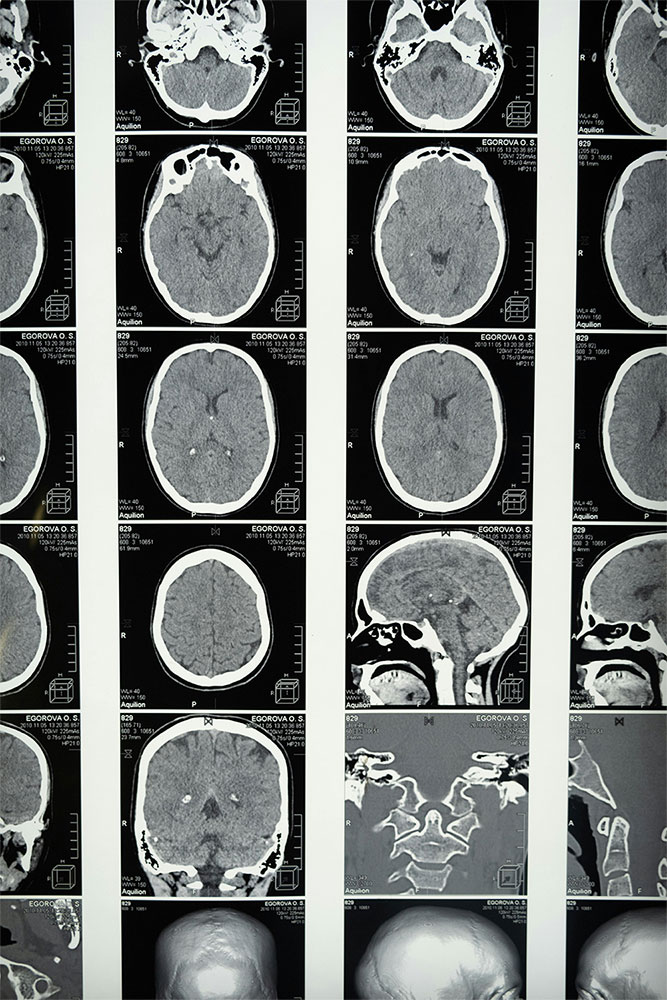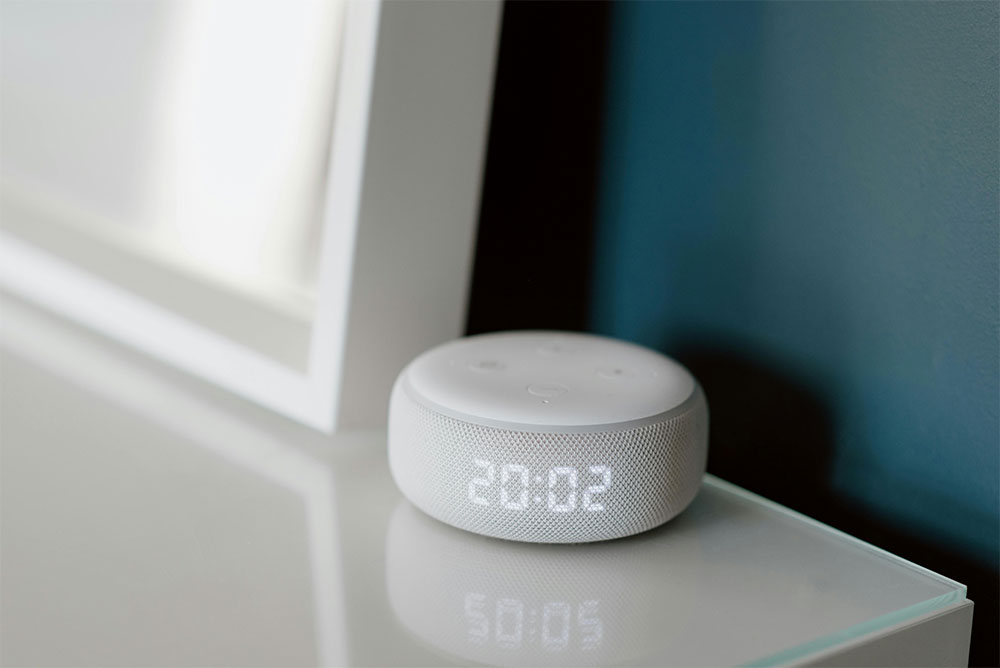It is important to understand the rate at which mild cognitive impairment (MCI) advances to understand its impact. In this article, we will learn about the progression timeline, associated risks, and potential interventions to slow down cognitive decline, offering insight into managing this condition effectively.

Christopher Ravn
Key Takeaways
1.Understanding the rate of mild cognitive impairment (MCI) progression is crucial for managing its impact, involving cognitive tests and regular assessments to detect changes early.
2. Transition from MCI to dementia, particularly Alzheimer’s, involves significant cognitive decline, but not all cases progress, and interventions like lifestyle changes can slow down progression.
3. Factors influencing MCI progression include age, health conditions, genetics, and lifestyle, highlighting the importance of early diagnosis and proactive management.
Table of Contents
1. How Fast Does Mild Cognitive Impairment Progress?
2. What Is The Next Stage After Mild Cognitive Impairment?
3. What Is The Mild Cognitive Impairment Timeline?
4. Does MCI Always Turn Into Dementia?
5. What Is The Progression Rate From MCI To Dementia?
6. How Long Does It Take To Get Alzheimer's From MCI?
7. What Is The Average Age For Mild Cognitive Impairment Onset?
8. Can Mild Cognitive Impairment Progression Be Slowed Down?
9. Is It Possible To Reverse Mild Cognitive Impairment?
10. What Are The Risk Factors For A Rapid Progression Of MCI?
11. How Common Is Mild Cognitive Impairment?
12. How Is Mild Cognitive Impairment Diagnosed?
13. Frequently Asked Questions About How Fast Does Mild Cognitive Impairment Progress
How Fast Does Mild Cognitive Impairment Progress?
Mild Cognitive Impairment (MCI) is a condition where one’s cognitive function starts to gradually change, but it is not yet evident enough to disrupt daily functioning. It varies among individuals, with MCI progressing to severe stages at different rates. Some cases of MCI may remain stable for years without detection, while others may show rapid advancement. Studies have indicated that around 12% of those with MCI progress to dementia per year, although this rate is not consistent for everyone.
Several factors can influence the rate of MCI progression:
- Type of MCI: There are different classifications and subtypes, such as amnestic (memory-related) and non-amnestic MCI. Amnestic types are associated with memory impairment and carry a higher risk of developing Alzheimer’s Disease.
- Underlying causes: Conditions like Alzheimer’s disease and other neurodegenerative disorders can affect the rate of MCI progression.
- Age and overall health: Older age and the presence of other health conditions may increase the likelihood of MCI progression.
- Lifestyle factors: Engaging in regular exercise, cognitive stimulation, and maintaining a healthy diet may help slow down the progression of MCI.
- Genetic factors: A family history of dementia and predisposition to related symptoms can also elevate the risk and rate of MCI progression.
What Is The Next Stage After Mild Cognitive Impairment?
The stage following mild cognitive impairment (MCI) is cognitive decline leading to dementia, with Alzheimer’s Disease being the most common form. It’s important to note that not all individuals with MCI progress to dementia; some may remain stable or even return to their previous level of functioning.
Transitioning from MCI to dementia involves a significant decline in cognitive abilities, particularly in memory, language, problem-solving, and executive function. This can lead to difficulties with daily tasks and activities, ultimately affecting independence and quality of life.
Several indicators may suggest that MCI is progressing to the next stage:
- Increased memory loss: Instances of memory lapses and difficulty recalling events or conversations may become more frequent.
- Problem-solving difficulties: Challenges in planning, organizing, and making decisions may arise.
- Language and communication issues: Difficulty finding the right words, forming coherent sentences, or expressing thoughts clearly may become noticeable. Thus, it is important to learn how to talk to someone with short-term memory loss.
- Confusion and disorientation: Individuals may experience confusion and get lost in familiar places, or struggle with spatial awareness and time perception.
- Behavioral or personality changes: Mood swings, irritability, agitation, and withdrawal from social interactions may occur.
Regular monitoring of individuals with MCI and discussing concerns with a healthcare provider are essential. Early detection and appropriate management, such as cognitive therapy, lifestyle changes, and medication, may help slow down the progression of MCI.
What Is The Mild Cognitive Impairment Timeline?
- Stage 1: This is the early MCI stage. Individuals at this point may go through slight changes in terms of their cognitive function. Though noticeable, it does not drastically affect their daily routine. However, one may notice difficulty in forming common phrases or memory lapses, but this does not affect the overall functionality.
- Stage 2: This is the intermediate stage, and at this point, the decline seems more apparent. You will notice memory issues becoming worse, and this affects their daily function. There may be other cognitive issues as well, such as attention span, language, or executive function.
- Stage 3: This is the late MCI stage. Here, one will experience a higher risk of dementia as their cognitive impairment becomes severe. This causes interferences in their daily routines and hence, their independence. This may look like the early onset of dementia.
As mentioned, there are several rates at which MCI progresses amongst individuals, and this is dependent on one’s lifestyle choices, genetic predisposition, and overall health.
We Believe Prioritizing Brain Health Enhances Your Quality Of Life
Get to know our team, our mission and how our EVY LIGHT® can provide you and your loved ones with a fuller life, letting you breathe a little easier.
Does MCI Always Turn Into Dementia?
MCI may not always turn into dementia, but it may increase the risk. As it is, around 12% of individuals with MCI are seen to progress into a state of dementia each year. There are several factors that may influence the likelihood of MCI progressing into dementia.
There are several factors that might trigger MCI to progress into dementia. One of them is Alzheimer’s disease pathology leading to dementia. However, there are other factors that can slow down the progression to dementia from MCI. One will need to incorporate a healthy lifestyle which includes regular exercise, a healthy diet, and proper social interactions, all tied to reducing the risks of cognitive decline. Another factor is managing cardiovascular issues such as diabetes, hypertension, and even high cholesterol, which are known to increase the likelihood of dementia.
Immersing oneself in activities that stimulate the mind, such as reading or learning new skills, will enable one to maintain cognitive function and resilience. It is also important to ensure there is early diagnosis and effective methods needed to manage conditions related to MCI. By doing so, you may help to slow down the progression of dementia.
What Is The Progression Rate From MCI To Dementia?
As mentioned, the rate of progression from MCI to dementia is not constant and may vary from one person to another. Thus, it may be difficult to determine a precise average rate.
The progression rate from Mild Cognitive Impairment (MCI) to dementia varies widely among individuals, making it challenging to determine a precise average rate. However, studies estimate that approximately 10-15% of individuals with MCI progress to dementia each year.
Several factors influence the progression rate from MCI to dementia. These factors include the underlying cause of MCI, age, overall health, genetics, and lifestyle factors. Getting involved with alternative lifestyle choices and medical aids may help to reduce the rate of progression from MCI to dementia. To add to that, a healthy lifestyle is needed to help reduce the risk of cognitive decline and dementia. By having an early diagnosis and coming up with the appropriate measures that are linked with MCI may play an important role in helping to delay dementia. It is important to have a proactive lifestyle and medical aid that can greatly improve the quality of life and slow down the rate of progress from MCI to dementia.
How Long Does It Take To Get Alzheimer's From MCI?
Similar to dementia, the rate at which individuals progress from MCI to Alzheimer’s varies. Though it is believed that there may be rapid progression from MCI to Alzheimer’s in a couple of years, other people may not show signs or even remain stable over long periods of time.
There is some research that shows around 10-15% of people diagnosed with MCI may progress to Alzheimer’s per year. However, this is dependent on a few factors, such as age, genetics, and overall health.
Moreover, some people may show signs of stability over time with no progression of Alzheimer’s Disease or other forms of dementia. However, some may show a gradual decline in their cognitive abilities which may progress into Alzheimer’s or other types of dementia.
What Is The Average Age For Mild Cognitive Impairment Onset?
The average age for Mild Cognitive Impairment (MCI) onset may vary but this normally takes place with older adults who are 60 years and older. Research has shown that the average range of those with MCI onset is from 60 to 85 years old.
Thus, it is important that age plays a huge role and those who are older face the risk of MCI. As people age, their brain structure and functionality start to change thus leading to a higher chance of cognitive decline. To add on, cardiovascular disease, diabetes, and even hypertension will increase the risk of developing MCI.
Moreover, as you get older, you will have lesser cognitive reserves and a reduced ability to compensate for any form of cognitive issues. This makes them more susceptible to cognitive issues and progression towards dementia.

Enhance your brain performance through the power of light.
Comfortable and easy to use 40Hz light therapy to support and improve your brain function.
View Our LightCan Mild Cognitive Impairment Progression Be Slowed Down?
While completely reversing Mild Cognitive Impairment (MCI) may be difficult, medical research suggests that specific interventions and lifestyle modifications can potentially improve cognitive function and slow the progression of MCI.
A study published in JAMA Neurology found that a combination of physical exercise, cognitive training, and a healthy diet led to improvements in cognitive function and daily living in individuals with MCI. Another study in the Journal of Alzheimer’s Disease reported that a Mediterranean-style diet, rich in fruits, vegetables, whole grains, and healthy fats, was associated with a reduced risk of cognitive decline and dementia progression in individuals with MCI.
Furthermore, research suggests that managing cardiovascular risk factors, such as hypertension, diabetes, and high cholesterol, may help slow cognitive decline and potentially lessen the effects of MCI. Engaging in mentally stimulating activities, social interaction, and maintaining a strong support network may also contribute to improved cognitive function and overall well-being in individuals with MCI.
While further research is needed to fully understand the potential for reversing MCI, these findings suggest that proactive lifestyle changes and targeted interventions can play a significant role in improving cognitive outcomes and quality of life for people affected by MCI.
Is It Possible To Reverse Mild Cognitive Impairment?
While reversing mild cognitive impairment (MCI) can feel daunting, medical research suggests that certain lifestyle changes may hold promise. These changes could help slow the progression of MCI and even improve cognitive function.
A study by the JAMA Network found that incorporating physical exercise, cognitive training, and a healthy diet improved both cognitive function and daily living in individuals with MCI. Another study, from the Alzheimer’s Society, showed that a Mediterranean-style diet rich in fruits, vegetables, whole grains, and healthy fats was associated with a reduced risk of cognitive decline and dementia progression in people with MCI.
Research also suggests that managing cardiovascular risk factors like diabetes, hypertension, and high cholesterol may help slow cognitive decline and potentially lessen the effects of MCI. Engaging in mentally stimulating activities, maintaining a strong social network, and having strong social connections can also contribute to improved cognitive function and overall well-being in those with MCI.
What Are The Risk Factors For A Rapid Progression Of MCI?
Several factors can accelerate the progression of mild cognitive impairment (MCI) to a more severe decline or dementia. As we age, the brain becomes more susceptible to neurodegenerative diseases, putting older adults at greater risk.
Additionally, conditions like hypertension, diabetes, high cholesterol, and obesity are linked to an increased risk of both MCI and cognitive decline in general. Furthermore, some individuals with MCI may experience a faster progression of underlying pathologies like Alzheimer’s disease compared to those without MCI. A sedentary lifestyle can also worsen the situation by limiting cognitive stimulation and accelerating cognitive decline.
To mitigate these risks and promote brain health, a holistic approach is crucial. This includes regular exercise, a balanced diet rich in fruits, vegetables, and omega-3 fatty acids. Those concerned about cardiovascular disease risk should consult a doctor for appropriate medication and lifestyle modifications. Engaging in mentally stimulating activities such as reading, puzzles, and learning new skills can also help slow down cognitive decline.
Early detection is key, and thus one should also ensure to add in brain exercises to prevent alzheimer’s. Regularly monitoring your cognitive health and seeking prompt medical attention if you experience signs of decline allows for better management of the condition and potentially delays the progression of MCI.

How Common Is Mild Cognitive Impairment?
Mild cognitive impairment is prone in older adults and it varies between age groups. Research has shown that at least 15 – 20% of adults ranging between 60 and older may suffer from MCI. For those who are 85 years and older, the probability of suffering from MCI maybe 25 – 30%.
However, there are a few factors that will add to the probability or risk factor of MCI. This includes genetics, age, lifestyle, and even any other added health conditions.
How Is Mild Cognitive Impairment Diagnosed?
In order to diagnose mild cognitive impairment (MCI), it has to be done through several methods. There are several cognitive tests that are done to evaluate memory, language, executive function, and attention span. It is important to diagnose MCI earlier to slow down cognitive decline and enhance the quality of life. However, it may be difficult to diagnose MCI because certain changes may be subtle or overlap with normal aging. Thus, continuously checking and having regular cognitive assessments are important for early detection of MCI. This will definitely help to provide the adequate intervention necessary to manage it.
Learn What Others Have Experienced with EVY Light
See how others have achieved a sharper mind by activating their gamma brainwaves in combination with maintaining a healthy lifestyle.
Frequently Asked Questions About How Fast Does Mild Cognitive Impairment Progress
How Fast Does Mild Cognitive Impairment Progress?
Studies have indicated that around 12% of those with MCI progress to dementia per year, although this rate is not consistent for everyone.
Can Mild Cognitive Impairment Progression Be Slowed Down?
While completely reversing Mild Cognitive Impairment (MCI) may be difficult, medical research suggests that specific interventions and lifestyle modifications can potentially improve cognitive function and slow the progression of MCI.





















































































